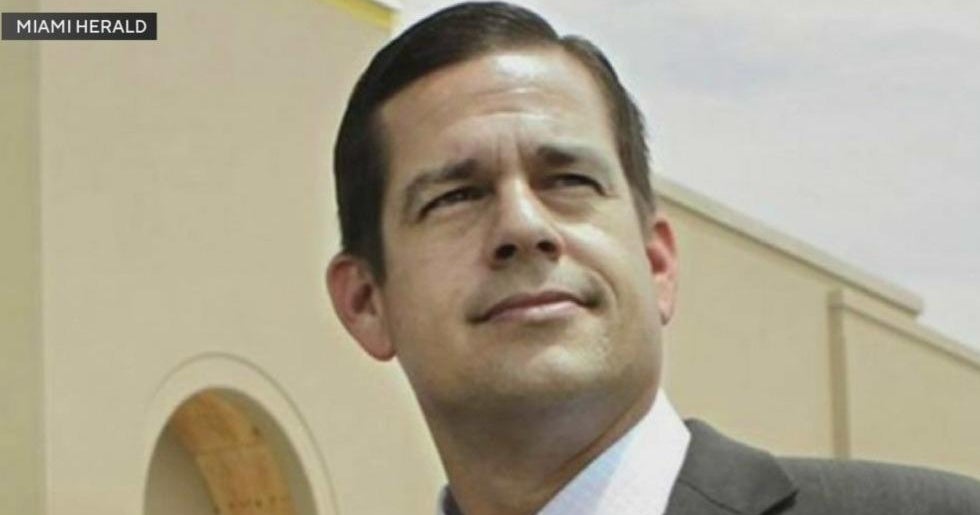Inaugural Poet Returns To Miami In New Memoir
Follow CBSMIAMI.COM: Facebook | Twitter
MIAMI (CBSMiami/AP) — One of the country's up and coming poets is returning to his roots.
In Richard Blanco's Miami, memories linger outside coffee windows and in Cuban grocery store aisles.
Barack Obama's 2013 inaugural poet grew up here, gathering experiences and stories as the son of Cuban exiles that would lay the foundation for his written work and inspire his new memoir, "The Prince of Los Cocuyos."
Since becoming both the first gay and Hispanic inaugural poet almost two years ago, Blanco has traveled the U.S., giving readings, writing poems and essays, and releasing two non-fiction books. He has become a literary spokesman of sorts, advocating for a more inclusive America and revealing his own struggles to come to terms with his identity as a gay man. He remains based in Maine, but like his parents before him who dreamed of Cuba, he dreams of another place.
He dreams of Miami.
"One of the things that fascinates me is how physical landscapes are intertwined with emotional landscapes," he said. "Everything that happens in our lives happens in a place and Miami is certainly that place since I was 3 years old."
"The Prince of Los Cocuyos" takes readers to Miami of the 1970s and '80s, where Blanco's family was one of tens of thousands building new lives after fleeing Fidel Castro's revolution. Loud and nostalgic, Blanco cringed at his parents' salsa music and Thanksgiving carne puerco — roast pork. He wanted to be American — New Wave music, pumpkin pie, Thanksgiving turkey.
In a series of loosely intertwined stories, Blanco describes a childhood marked by loss, humor and hints of an exotic land called America. In "Losing the Farm," he recounts his grandfather's attempt to recreate the chicken coop he had in Cuba in the family's suburban Westchester (or "Guescheste" as it is pronounced by many Cubans) backyard, much to the chagrin of Miami's code enforcement police.
In "It Takes Un Pueblo," he describes his weekends and summers working as a clerk in his great uncle's small, family-run grocery store, El Cocuyito, or the little firefly. His sometimes abusive grandmother had insisted he take a job there, hoping working with Don Gustavo would "make him a man."
In checkout counter conversations, the store's patrons slowly reveal pieces of who they are to him: The daughter of a former general who once lived in Cuban mansions and now resides in a cramped apartment, where she makes dresses she'll never be able to afford. The Havana street vendor who rebuilds the city he walked thousands of times with his wares in painted cardboard cuttings, the details of which he struggles to remember.
The book ends with Blanco at 17, a young man no longer ashamed of his family's Thanksgiving roast pig.
"It's a process of falling in love with your culture for the most part," Blanco said.
Life has taken Blanco away from Miami in the years since. He went to Cuba with his mother, a visit that helped fill "a lot of the blanks" about his identity, but only the Cuban half, he said. He moved to Connecticut to teach creative writing, thinking, "Maybe I should try moving to America." There, he thought he'd find the quintessential America that he'd grown up watching on TV. He didn't.
He moved to Guatemala with his partner and then to Washington.
"All the while I missed Miami terribly, terribly, terribly," he said.
When he returned, he found a changed Miami: David's Cafe, a legendary Cuban restaurant off Miami Beach's Lincoln Road, was renamed Abuela's. Wolfie's Jewish deli closed. El Cocuyito was sold. And those were just the cosmetic changes. His parents and grandparents' generations were dying out. New waves of Cubans who grew up under the revolution were moving in. Venezuelans, Brazilians and other Latino immigrants were, too.
The Miami he describes in "The Prince of Los Cocuyos" is still there, but parts of it are gone.
"I realize now how my parents feel, my mother in particular, when she goes back to Cuba, this sense of ownership," he said. "We all sort of are subject to change and we all lose things in our lives. We all have in some ways an immigrant exile experience."
(TM and © Copyright 2014 CBS Radio Inc. and its relevant subsidiaries. CBS RADIO and EYE Logo TM and Copyright 2014 CBS Broadcasting Inc. Used under license. All Rights Reserved. This material may not be published, broadcast, rewritten, or redistributed. The Associated Press contributed to this report.)
RELATED CONTENT:



